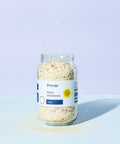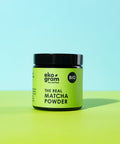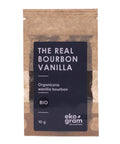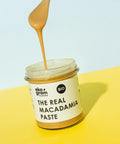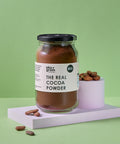Organic food
Organic food - is it really worth buying?
According to the Ministry of Agriculture and Rural Development, the number of organic farms in Poland has increased over 11 times in the last 10 years. What is the reason for the fashion for "eco" and is it really worth buying such products?
Ecology under control
Whether a farm has a chance to become ecological is determined by numerous legal acts and restrictive certification processes - both national and EU. So what rules must be met in order for a given farm to become a real "organic farm"? First of all, they cannot use any artificial fertilizers accelerating the vegetation of plants or affecting the amount of crops. The only fertilizers that have been approved are those of natural origin. Of course, this is not the only requirement set by the legislator, but it is certainly the most important. In this case, a number of other guidelines allowing the operation of a farm under ecological principles were also standardized. They concern, for example, the period of conversion (i.e. conversion to ecological production methods), fertilization of the soil by the ecosystem (and not fertilizers added to the soil), or even the requirement to use crop rotation. Of course, the set of these guidelines is much broader and it is impossible to mention all of them in this text.
Organic farms are constantly subject to strict controls by appropriate certification bodies. They check not only the condition of the natural environment in the area of the farm itself and its adjacent areas, or the production methods, as well as the method of food storage and its subsequent processing. The entire process of creating ecological products is, as already mentioned, strictly supervised, and each subsequent stage must meet strict requirements. All this so that the consumer can be sure that when buying a product marked as ecological, he receives the highest possible quality.
Organic farming, which is what?
Until just 100-150 years ago, all food produced in the world was organic. Why? Because no artificial chemicals were used to grow the plants. This was because the science of that time was not yet developed enough to produce such resources on a mass scale, and those which were already being produced were too expensive for the average farmer. In addition, no combustion machines were used, only farm animals. However, this all changed in the 20th century. Unfortunately, not to the benefit of consumers, but above all to the benefit of producers, especially large-scale ones. Along with the development of technology and science, a number of substances have been developed that are to contribute not only to accelerating the vegetation of plants, but also to the growth of the crops themselves. Such activities necessarily had an impact on the quality of the food produced.
For several years, however, there has been a visible tendency for consumers to look for unprocessed food to which no artificial ingredients are added and, most importantly, is grown using natural methods, just like 100 years ago. So what distinguishes organic farms from conventional farms.
Differences between organic and conventional farms appear already at the stage of obtaining raw materials for sowing or planting plants. The best solution is for farmers to breed them on their own farms, of course organic or source them from other "organic farmers". Of course, the use of inorganic substances stimulating the reproduction, growth or even rooting of plants is excluded. Seeds and seedlings cannot be treated with synthetic agents or genetically modified.
When it comes to soil fertilization, organic farming relies on organic substances, minerals (fertilizers made, for example, from ground rocks). Mud or peat are also used, which are a natural sediment of water reservoirs. Any other fertilizers in organic farming are forbidden, unlike conventional farming where there is practically unlimited freedom. There are also a number of regulations regarding the protection of crops against pests, diseases and weed infestation. They are all based on natural, biological methods.
Eco products - is it worth it?
In recent years, ecological products have become fashionable. They are recommended by celebrities, shown in popular culinary shows, are the subject of numerous discussions and many articles published both in the print press and on the Internet. However, it is not only peeking at others, but above all the increasing awareness of consumers, that now we are experiencing a real boom on eco food. Store shelves are better and better supplied with products that come from organic farming, and organic food stores, both virtual and real, arise like the proverbial mushrooms after rain. However, we often approach eco products with a distance. Why is this happening? The reason is one and almost always the same - because of the higher price. Obviously higher compared to conventional counterparts, bred on an industrial scale. The question we then ask ourselves: "is it worth paying more for an ecological product?" Should be changed to: "can we afford saving on health?".
Why? Because the so-called conventional food has long ceased to be grown on the original principles of agriculture. Currently, the most important factor in breeding is not the quality of the food itself, but its quantity. In short, it can be said that the more the better. But are you sure? For production, it uses, on a massive scale, artificial fertilizers, improvers and a number of other compounds aimed at improving efficiency. A good example here is the comparison of the average yields of wheat, potatoes or carrots per hectare. With the ecological approach, the average annual yield of wheat per 1 ha is 3.05 tonnes, potatoes for which our country stands 21 tonnes, and carrots 28.5 tonnes. In the same area, however, using conventional methods, the average annual yield of the same products is 9.5 tons of wheat, 30.05 tons of potatoes and 51.25 tons of carrots, respectively! Of course, the nutritional values of these products change as well. It is perhaps not surprising that those grown organically keep them at a constant high level. Conventional crops, on the other hand, "lose" them. Following this lead, non-organic products must be cheaper. Their production is cheaper, fully mechanized, a number of different compounds are used to improve the fertility of plants and accelerate vegetation. The most interesting, however, is later. From the label on these products, we can very often read what is in the packaging. And we can find there a number of preservatives, flavor enhancers, sulphates, sorbates and other compounds whose names are sometimes difficult to pronounce. In ecological products, however, they usually contain only a given product, without unnecessary additives. If they have to be there, they are also ecological.
Each product with information about its ecological origin and certification is produced under the strict control of bodies specially appointed for this purpose. By buying it, we can be sure that we receive food free of chemical additives, genetic modifications, artificial fertilizers, hormones and other substances that have a negative impact on the human body. Organic products are additionally rich in micro- and macroelements, because they are not affected by any synthetic chemical compound that could reduce their nutritional value. Research shows that organic fruits and vegetables contain, for example, vitamin C and magnesium as much as 30% higher than their mass-produced counterparts. In addition, organic plants have as much as 120% more so-called phytochemicals that have anti-cancer, antibacterial and even anti-aging properties.
Another element influencing the price of organic food is the cost of its production. However, we pay only for the final, wholesome, healthy product, and not for the effect of mass production filled with chemicals, its advertising, rent and a number of other incidents.
How to recognize an ecological product?
Often the terms "organic food" and "healthy food" are used interchangeably. However, it is wrong, because products marked in a given way have a specific specificity. The organic ones are at least 95% made of ingredients of organic origin, are subject to the process of verification of their production methods at each stage and have a special marking consisting of the name and code of the certification body.
However, we should pay special attention to the very appearance of the label. On some products, we can meet the prefix "Bio" before their name, on others "ecological product" or simply "ecological". The most important thing, however, is the organic farming logo. If it is on the label, we can be sure that the product is an ecological product. Plus, it's standardized and looks the same all over the world. There is also an individual certificate number under the logo, granted by a special certification body, eg PL-EKO-03. Such a label should also contain the name and address of the entity introducing the product for sale (producer, processor).
Organic products, although more expensive than their conventional counterparts, are healthy, wholesome, free of chemical additives and genetic modifications. By buying them, we not only improve our own well-being, but also support food production that is in harmony with the environment. When making subsequent purchases, it is worth considering whether we prefer to spend our money on the marketing of large corporations and processed food, or to invest 100% of our funds in a product that will fully serve our health and the environment in which we operate.










